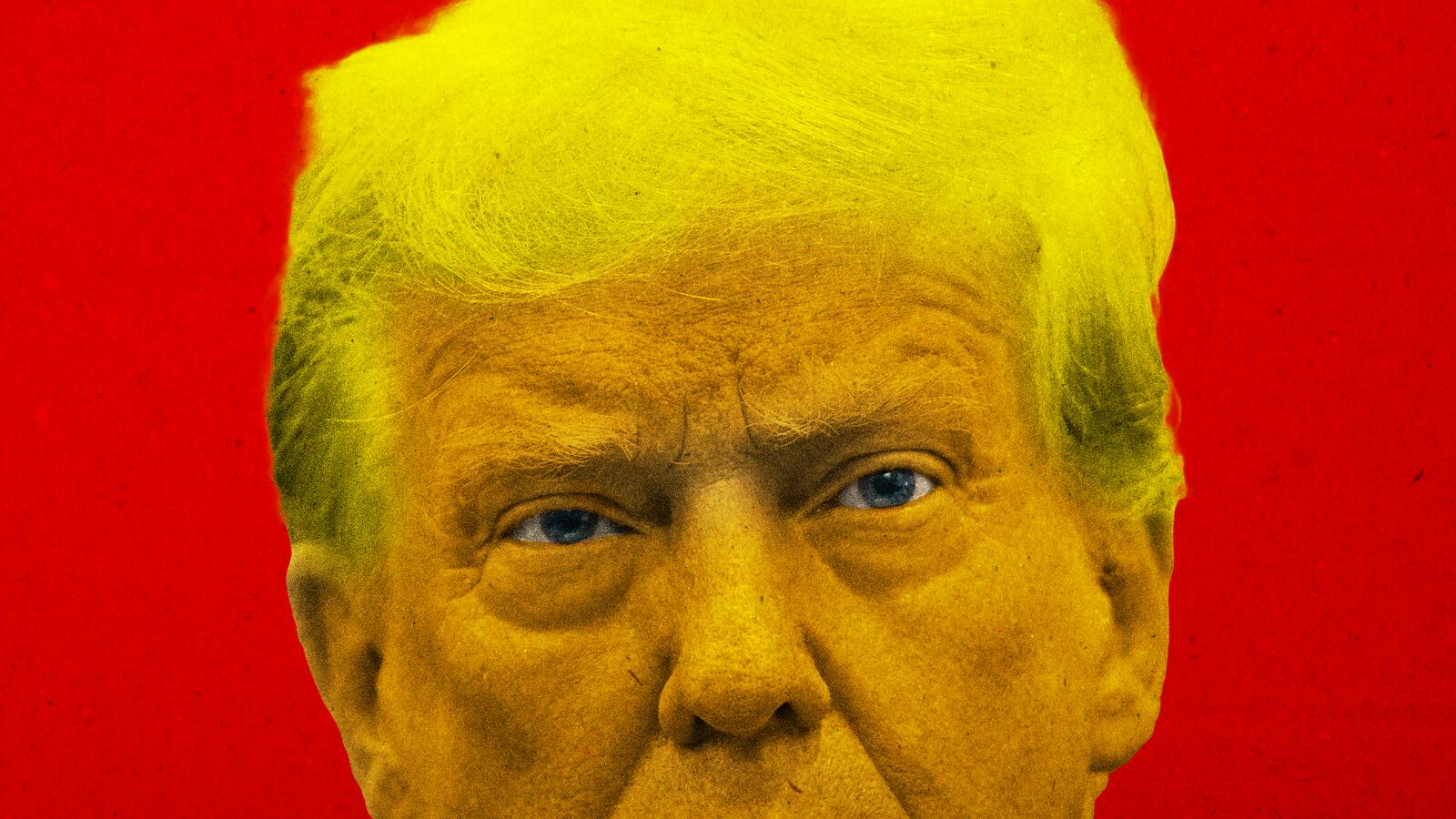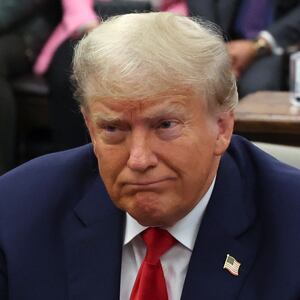Judge Tanya S. Chutkan just gave Donald Trump and his legal team a lesson in the rule of law.
On Tuesday, Chutkan–who is presiding over the criminal case brought against Trump for election interference by Special Counsel Jack Smith–issued a pithy three-page order that partially gagged the former president in what he can say about his criminal trial.
The concise nature of Chutkan’s order is all the more impressive because it comes after multiple written pleadings, two hours worth of courtroom arguments, and multiple social media posts by Trump that doubled down on his insults and veiled threats against nearly anyone who could be associated with the case.
Trump’s targets include the special counsel–who Trump regularly refers to as being “deranged”–plus Smith’s staff–who Trump refers to as “thugs”–the judge, President Biden, Trump’s own former Vice President Mike Pence, as well as General Mark A. Milley, who served as chair of the Joint Chiefs of Staff during Trump’s term. Trump suggested Milley is a traitor for whom execution might have been justified.
Chutkan’s order is simple and clear about what Trump can and cannot do. Trump can engage in political speech for his campaign (including criticizing former VP Pence’s policies), criticize the government generally (including the U.S. Justice Department and the current administration,) assert his prosecution is politically motivated, and assert that he is innocent.
Trump cannot target the special counsel or his staff, the court’s staff and support personnel, or any other “reasonably foreseeable witness or the substance of their testimony.”
The simplicity of the order is admirable because of the legal and factual complexities raised by the issue of seeking to limit the speech of a criminal defendant who is also a candidate for office. Chutkan had to wade through a mountain of hot air from Trump’s lawyers about what they characterized as a complete shield provided by the First Amendment against any limiting of Trump’s speech while he is campaigning for the presidency.
Legal precedent was sparse but even the cases Trump relied upon recognized that the First Amendment was not omnipotent and “that First Amendment rights must yield to the imperative of a fair trial.” Chutkan noted the seminal U.S. Supreme Court decision in Seattle Times v. Rhinehart which stated that, “Although litigants do not surrender their First Amendment rights at the courthouse door, those rights may be subordinated to other interests that arise in this setting.”
Critical to the judge’s reasoning in imposing restrictions on Trump was her concern over the safety of those that the former president chooses to insult. Her order pointed to numerous instances in which Trump’s public attacks on individuals resulted in threats and harassment, referencing specifically Trump’s characterization of “thugs” and “liars.”
The concerns are well justified, given the FBI was forced to form a special unit in 2022 to address threats made against it–estimated by one official as having increased by 300 percent since the Mar-a-Lago search warrant execution. In addition, Special Counsel Smith and criminal prosecutors in the Georgia and Manhattan cases against Trump are all now requiring round-the-clock protection. Chutkan’s chambers also received a threat by phone for which the caller was arrested and charged.
Naturally, Trump and his legal team have already announced they will be appealing this order. The appeal is unlikely to be successful given the order’s emphasis on the dangers posed to witnesses, court staff, and prosecutors by Trump’s actions. The soundness of its legal analysis should withstand any appellate review which is, by nature, limited to the legal–—not the factual—conclusions of the trial court.
But Judge Chutkan’s order reverberates beyond the facts and integrity of this case because Trump’s defense affects far more than whether he will be found guilty or not. As often noted, Trump’s legal defense has become indistinguishable from his political strategy. He utilizes the criminal charges to fundraise while his lawyers make arguments in court that echo his claims that the entire prosecution is a political persecution (albeit minus the suggested death threats).
For Trump—and the authoritarian dictators he appears to admire—law is dictated by political power. Whoever is in charge gets to say what is legal and what is illegal. Political enemies are made into criminals while criminals get a pass if they are political allies. As historian Heather Cox Richardson writes about today’s Republican Party, “its extremist leaders no longer believe that the rules apply to them.”
Noting that the rule of law is in a fragile moment globally with the Ukraine invasion and attacks by Hamas, Richardson references a victory for the rule of law in Poland where voters came out in force to reject a nationalist-conservative party that “turned state television into a propaganda tube, used state companies to fund its political campaigns… politicized state administration… altered electoral laws and even leaked top-secret military documents, manipulating their contents for electoral gain.”
Sound familiar? Trump and his MAGA enablers have already promised a complete overhaul of the federal workforce if he is re-elected.
The devil is in the details and questions about how to determine whether Trump has violated Chutkan’s order and what type of sanction to impose still loom ahead. But today, one federal judge, in one simply written order, showed how the rule of law can stand in the way of the Republican party’s march toward authoritarianism.








